Enhancing Independence through Assistive Technology
- Thursday, September 26th from 12 to 4 p.m.
- Robert E. Plecker Workforce Center at Blue Ridge Community College
- Guest Presenter: Assistive Technology Network of Virginia

- For questions, please email: IFSPCommunity@dbhds.virginia.gov
Expo Materials
Registration Link
- Our registration form is closed, but if you are interested in attending in person, please come and join us! If you are interested in joining us virtually, please scroll down to the bottom of this page for the Zoom link. Please note that the presentation will begin promptly at 12 p.m.
- Expo Flyer
Schedule
12:00-1:30 pm AT Network of Virginia presentation with panelists
1:30-1:45 pm Break
1:45-4:00 pm Meet our exhibitors and explore on your own!
Presenter Bios
The Assistive Technology Network of Virginia addresses priorities of VDOE with coordination, implementation, and dissemination of information about the laws which define AT devices and services, the process of AT Consideration by Individualized Education Program (IEP) teams, AT assessment, Augmentative and Augmentative Communication (AAC), and AT resources.
The Virginia Department of Education’s state-wide Training and Technical Assistance Centers (TTACs) provide professional development and support designed to assist schools in addressing accountability and improvement goals for students with disabilities.”
Exhibitor Bios
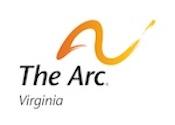
Quillo Connect is a website and app that DBHDS has made free for people with disabilities and their families. It connects people with the information and inspiration they want, from people they can trust.
Peer Mentorship is available to people with IDD who are either on the DD Waiver, or the DD Waivers Waitlist. Sometimes, the right support is that of someone who has been there.
ALLY Alliance ensures that the voices of people with disabilities are the primary force for effecting change in Virginia. The Alliance works to increase the availability of inclusive supports for people with developmental disabilities, by working to influence changes in policy, expectations, and systems. Anyone with a developmental disability can join the ALLY Alliance!
Blue Ridge Community College Office of Studen Accessibility

What does using assistive technology look like in a college setting? Student Accessibility Coordinators from the Blue Ridge Community College Office of Student Accessibility will share examples of the assistive technology they currently utilize.
The Center for Family Involvement at VCU
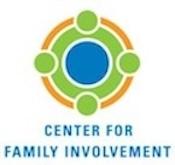
The Center for Family Involvement works with families to increase their skills as advocates, mentors, and leaders so that families, children, and young adults with disabilities can lead the lives they want.
Children's Assistive Technology Service (C.A.T.S.)

C.A.T.S. helps children with physical, neurological, and developmental disabilities have better health outcomes, participate in school and community, connect with family and friends, and be more independent. We provide no-cost adaptive mobility and communication equipment, educate pediatric clinicians, teachers, and caregivers, and promote responsive and responsible public health policy.

SafeinHome provides 24/7 Remote Supports with technology through an individual’s Electronic Home Based Services (EHBS) IDD waiver funds or Private Pay ($13.00/ hour with a 14-hour weekly minimum). Individuals can be living at home with parents, in group settings, or independently in their own home.
SafeinHome delivers a complete connected care solution supporting an accessible and safe environment, enabling people with disabilities to live self-directed, independent lives (which look different for everyone). SafeinHome combines friendly, personalized Remote Supports services with discreet, easy-to-use sensor technologies, supporting more freedom, flexibility, and peace of mind for the Individual and their entire Support Circle.
Valley Associates for Independent Living (VAIL)
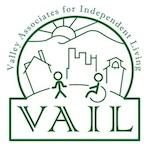
VAIL is the Center for Independent Living (CIL) that covers all of Planning District 6 (Harrisonburg, Rockingham, Staunton, Waynesboro, Augusta, Lexington, Rockbridge, Buena Vista, Bath, and Highland). As a CIL, VAIL offers 5 core services: (1) Information and referral, (2) Independent living skills training, (3) Peer support, (4) Advocacy, and (5) Transition – both from a nursing home and students transitioning to adult services. In addition, VAIL offers IEP assistance, technical support, private DD case management (in select areas), service facilitation for the DD and CCC+ waivers, assistance with applying for grants for home modifications through VA Housing, options counseling, and adaptive recreation programs, among other services.
Valley Community Services Board
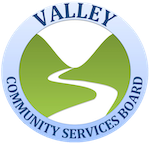
The mission of the Valley Community Services Board (VCSB) is to provide community based behavioral health, developmental disability and substance use services. We strive to provide a better quality of life for the individuals we serve and their families by offering a wide range of services tailored to each individual's needs. In addition to Developmental Services Support Coordination, we also provide Infant and Toddler services (Part C) for children age 0-3, Sponsored Residential services, Community Engagement, and ICF/IID homes. Medicaid Waiver may be required for some Developmental Services. VCSB Support Coordination would be the central point of entry for determining DD Medicaid Waiver eligibility. VCSB bills third party payers, including Medicaid.
Virginia Department for Aging and Rehabilitative Services (DARS)

The Division of Rehabilitative Services (DRS) works together with students, youth, families, schools and community agencies and organizations to provide services that promote successful transitions from school to work and adult life. DRS offers two sets of services to help students with disabilities move from school to post-school life: pre-employment transition services (Pre-ETS) and vocational rehabilitation (VR) transition services.
DBHDS Office of Integrated Health - Health Support Network

The Health Support Network at the DBHDS Office of Integrated Health provides safety assessments for medically appropriate equipment, power and/or pressure washing, minor adjustments, repairs, and custom adaptations. These services are offered for durable medical equipment used by individuals with developmental and intellectual disabilities in the Commonwealth of Virginia. These services are free of charge for individuals and their caregiver.
Virginia Department for the Blind and Visually Impaired (DBVI)
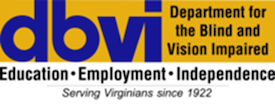
The DBVI Rehabilitation Technology Services program helps people with vision impairments by showing different assistive technology that they can use in their everyday lives and at work. They show different types of technology and create solutions that fit each person's needs.
Virginia Department of Education AT Services
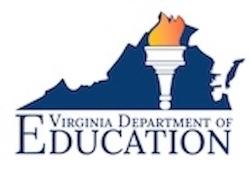
The Virginia Department of Education works in partnership with Virginia’s 131 school divisions to support and improve teaching and learning, set high expectations for all students, and promote student safety, wellbeing, and health. The VDOE will provide information on the training and technical assistance available to support the consideration, implementation, and evaluation of assistive technology devices and services to support students with disabilities.
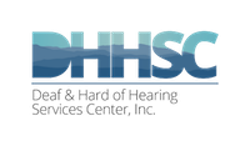
Explore the Technology Assistance Program (TAP) from the Virginia Department for the Deaf and Hard of Hearing (VDDHH)! Deaf and Hard of Hearing Services Center Inc. works in conjection with VDDHH-TAP to offer a range of helpful technology for people who are deaf, hard of hearing, DeafBlind, or have speech limitations. Depending on your family size and income, you might qualify for these devices at no cost or low cost. Visit us to learn more about how we can help you stay connected and make life easier.
VDOE's T/TAC (Training and Technical Assistance Center) at VCU
The Virginia Department of Education’s Training and Technical Assistance Center at Virginia Commonwealth University offers a variety of services tailored to assist personnel in schools, interagency coordinating councils and state-operated programs in superintendent’s regions 1 and 8.
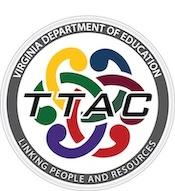
The VDOE's T/TAC at VCU is a part of the statewide network of T/TACs across Virginia and a participating member of the online community TTAC Online. The VDOE's T/TAC at VCU is also a part of the Partnership for People with Disabilities, a member of the National University Centers for Excellence in Developmental Disabilities and the VCU School of Education VCU School of Education.

VirginiaNavigator's family of websites is a trusted nonprofit resource for older adults, people with disabilities, veterans, and their caregivers and families. Visit VirginiaNavigator, disAbilityNavigator, and VeteransNavigator to learn more.
MyLifeMyCommunity is an online tool that helps people with developmental disabilities (DD) and their families answer basic questions about services and supports. MLMC is powered by VirginiaNavigator.
Special Guests
Alleghany Highlands Community Services Board
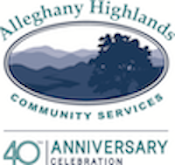
Rockingham County Public Schools Special Education
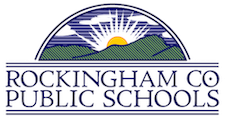
Getting to the Expo
- Map
- Directions to Blue Ridge Community College: The Weyers Cave Campus is located halfway between Harrisonburg and Staunton on Interstate 81. Take Exit 235 off Interstate 81. Turn west at the top of the exit ramp (Route 256). In a very short distance, Route 256 terminates in a junction with U.S. Route 11. Turn left (South) on U.S. Route 11. BRCC Weyers Cave Campus is about a half-mile on the left.
- Parking: Free parking is available in the parking garage and all college lots! The closest parking to the Plecker Workforce Center will be in the parking garage (Q on the map), Plecker West (Lot F on the map), and Plecker East (Lot E on the map). There are marked handicapped parking spots in Lots F and E.
- Where to Stay: The below hotels are located between 5-10 minutes from the expo venue. DBHDS does not endorse nor do we receive any benefits from these recommendations.
- The Village Inn Harrisonburg
- Quality Inn Verona – Staunton North
- Microtel Inn & Suites by Wyndham Harrisonburg
- Best Western Plus Harrisonburg
- Tru by Hilton Harrisonburg
Other Things to Know
- Attending In Person: Please plan to arrive in time for the presentation! We will begin promptly at 12 p.m.
If you enter through the North Entrance, the Plecker Workforce Center will be the third building on your right. If you enter from the South Entrance, make a left from the first parking lot (Lots E and F) and the Plecker Workforce Center will be the first building on the right. When you get to the building, you will see signs for the expo and be welcomed by greeters who are excited to meet you! If you need help, please call 844-603-9248. - Attending through Zoom: Join the presentation using this Zoom link: https://virginiatech.zoom.us/j/5402310822
- Accessibility: If you are an individual who requires an accommodation to participate in this event, please email us at IFSPCommunity@dbhds.virginia.gov by Friday, September 13th so we can discuss any needed arrangements.
- Attire: Casual attire is encouraged. Please dress for your body temperature, comfort, and needs!
- Refreshments: Lunch will not be provided, so please plan to eat before or after the expo. However, light snacks and refreshments will be individually packaged and provided. If you have any severe allergies, you may want to bring your own or use reasonable precautions. If you would like to eat outdoors, there is seating outside the Plecker Workforce Center.
- COVID Safety: To be considerate of those with compromised immune systems, masks will be available but not required to attend. Hand sanitizer will also be placed near AT equipment and tools.
- Photography Notice: Please be advised that photographs will be taken at this event for use on the DBHDS and VDOE websites, social media, and other materials. By entering this event, you consent to DBHDS and VDOE photographing and using your image and likeness.